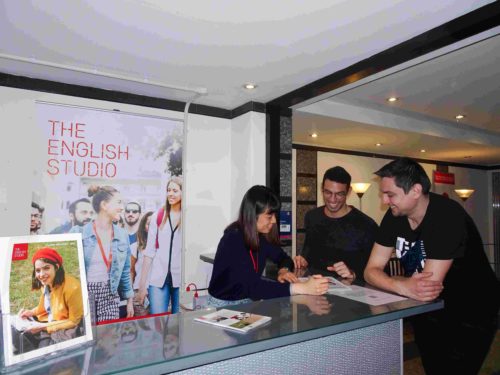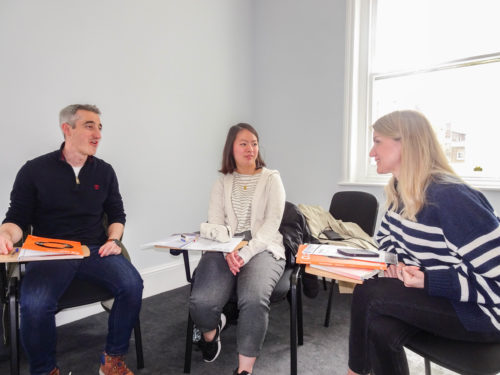Prepare for your job interview in English
We’ve all been there; you’ve prepared endlessly for your job interview only to be asked a tough question and look like a deer in the headlights. Have no fear because today we’re going to be telling you how to answer the most common interview questions so you knock the socks off your interviewer and land the job.
1) Tell me a bit about yourself

Arguably the most common interview question that there is as it’s a great way for the interviewer to get to know you on a more personal level. But don’t be fooled, they probably want to hear more about your career aspirations than your private life. So instead of talking about your dog or your first crush in primary school, talk about what in your life led to you being there. Always start with your recent past, continue by talking about your current situation and end with talking about your aspirations and next career step.
For example: ‘I moved here 5 years ago to study Statistics at ____University where I graduated with a 1st. During my studies, I worked as a PT Research Assistant at University, and that opened up the prospect of working for a Research company. In the future, I hope to gain enough knowledge and experience in the field that I can run my own Research company’.
2) What are your strengths?

The interviewer wants to hear that you have the right skill set to do the job. The more relevant your skills are, the more likely you are to get the job. However, it’s not just practical skills that employers look for, but also personal abilities (soft skills). Soft skills show that: you are a good person to work with (‘I’m a good team player’), you don’t crumble when there’s too much work (‘I work well under pressure’), you finish your work on time (‘I meet all of my deadlines’), etc.
Make sure you support your answers by giving real life examples so the interviewer knows they can trust you.
I.e. ‘I turned in most of my university work a week in advance’, ‘I used to be the captain of my softball team’, etc.
3) What are your weaknesses?

This is a very tricky question. You don’t want to say bad things about yourself, especially when you are there to impress them and hopefully get the job.
The easiest way to tackle this question is by thinking about the things you weren’t very good at but you are now overcoming. So in a way they are weaknesses that you are working on.
For example: ‘ I used to be a bit disorganised but now I use an organiser/ a system to keep on top of my work and I am already much better’.
4) Why do you think you are right for this job?

This is your chance to sell your skills and present yourself in a really good light. You can do so by talking about how you have the relevant experience and skills for the job but you also can offer so much more by being: creative, an excellent team-player, great at coming up with innovative ideas, etc.
Don’t shy away from praising your own achievements either. In the end, the more you can offer, the more they will want to hire you.
5) Do you have any questions for us?

You should always have a few questions for the interviewer. After all, an interview is supposed to be a two way conversation, so you are allowed to ask them as many questions as you want.
A couple of questions you might want to avoid are: ‘how much will I be paid?’ (this might look like you only care about the salary) and ‘how many days of holiday will I get?’.
Ask questions that show you really care about the company and working there. So before you attend the interview, make sure you’ve done enough research so you can ask something specific.
I.e. ‘I saw on your website that you plan on expanding in the next couple of years. Could you tell me what actions you plan to take in that direction and how would I help (if I was given this role)?’
In conclusion, talk about yourself but don’t give too many personal details, talk about your soft skills as well as your practical ones, only talk about weaknesses that you are currently overcoming and ask enough relevant questions to show you are really keen to work there.
Please note that these are all just examples of questions you might be asked. Often interviewers choose to have ‘informal chats’ rather than interviews, which means you can be a lot more relaxed when you talk about yourself.
No matter the type of interview, please keep calm and collected and remember that every interview is an opportunity to learn. So whether you get the job or not, you are one step closer to finding the right role for you.





